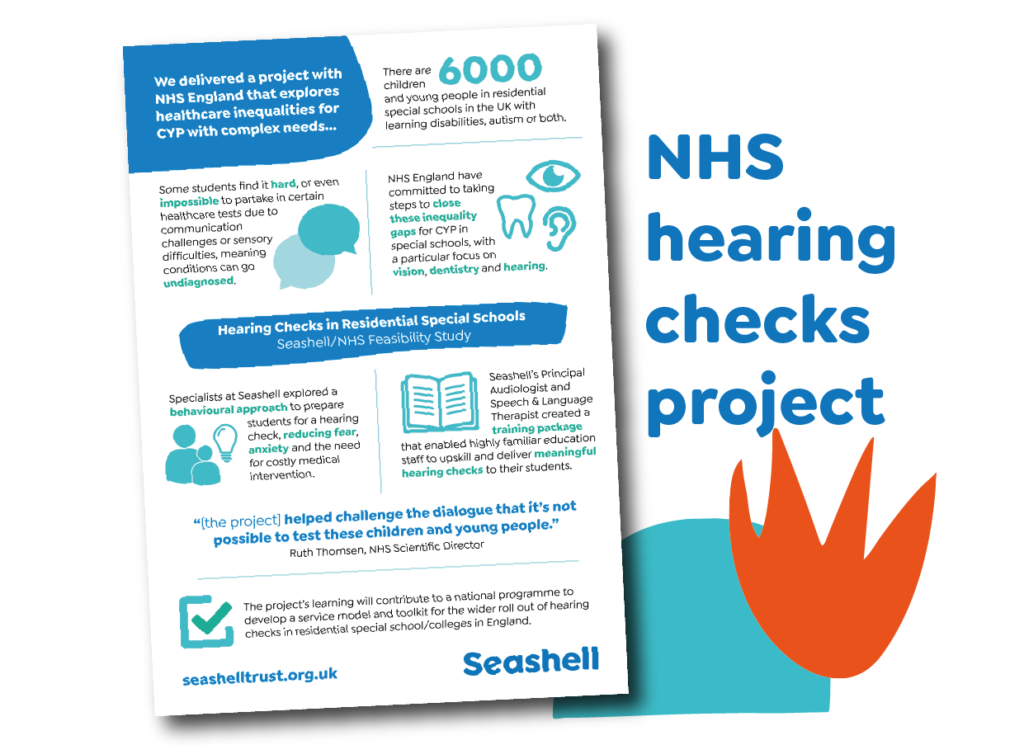Children and young adults with additional needs experience significant health inequalities, and face major barriers in accessing health services.
Some may find it especially hard to partake in certain tests due to communication challenges or sensory difficulties, and may be subject to ‘diagnostic overshadowing’ where certain symptoms are wrongly linked to existing conditions.
There is however, a national agenda where NHS England have committed to taking steps to close these inequality gaps for children and young people with learning disabilities and/or autism, with a particular focus on vision, dentistry and hearing.
Students at Seashell have profound and complex learning and communication difficulties, and require highly specialised care and support to ensure individual’s needs are understood and met. This expertise enabled Seashell to contribute to the national agenda by embarking on a project, which will inform NHS England’s plans for delivering hearing checks to children and young people in special schools across the UK.
The prevalence of hearing loss in children with learning disabilities is not well known, however, it is believed to be considerably higher than in typically developing children. Conditions can often advance and deteriorate in those with hearing complications due to the individuals inability to endure hearing checks and medical intervention.
The multidisciplinary team at Seashell wanted to discover if education staff could be upskilled, and deliver meaningful hearing checks. They explored a behavioural approach to prepare students for checks, using desenitisation methods, and acknowledging sensory and communication needs. The benefits of being in an educational setting with highly familiar staff is that the approach can be person centered, and adapted depending on the needs of the individual. This method resulted in positive outcomes, and a significant amount of students were able to access a hearing check, which before they could not tolerate.
Verity Langlands, Principle Audiologist at Seashell commented on her involvement in the project: “The project was a fantastic opportunity to raise the profile of audiology and hearing loss within Seashell. It was encouraging to see staff interested in participating in the training sessions, and having the opportunity to work with other health colleagues and learn from their disciplines and therapeutic approaches. Above all, we identified unmet need amongst our students, which really gives meaning to the whole project. My favourite part of the project was seeing the students who find examination difficult become confident and enjoy having a health check.”
Ruth Thomsen, Scientific Director and Senior Responsible Officer for Hearing Checks, NHSE said: “This work has helped shape what will happen in other schools. [Seashell] Helped challenge the dialogue that it’s not possible to test these children.”


